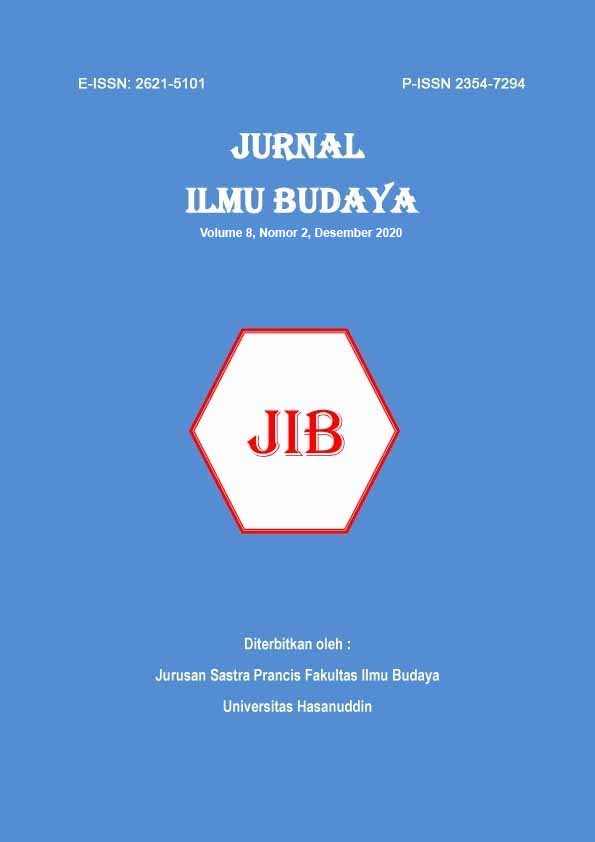FALSAFAH EMPAN PAPAN BERDIALOG DENGAN RICHARD RORTY TENTANG BATAS TOLERANSI
DOI:
https://doi.org/10.34050/jib.v8i2.10989Keywords:
empan papan, ironically liberal, multicultural politics, tolerance limitsAbstract
The focus of my study is to devise tolerance limits in the Javanese empan papan philosophy frame. This study is important because there are many incidents of oppression between groups in Indonesia. Indonesia has a variety of diversity, such as religion, culture and ethnicity. That diversity creates boundaries in building a life together in Indonesia. I used a library research method about Javanese philosophy of empan papan and dialogued it with Richard Rorty's thoughts. Four board is widely understood people must consider the location, condition and situation carefully. You can't just talk and act. Javanese humans place knowledge in the way they are in the expression of ngelmu kanti laku (knowledge by doing-being in action, and words that are realized). The philosophy of the empan papan was dialogue with Richard Rorty's thoughts about ironic humans, ironic liberal people and multicultural communitarian politics. This research brings together East-West tolerance limits, confirming Richard Rorty's thoughts. Limits of tolerance must be institutionalized through a consensus of public opinion that is built up dialogically. This is very possible because Javanese people are adaptive to empan papan. Javanese people respect the independence of each individual but at the same time place it in the public sphere. Javanese man never puts his self-awareness alone, always in his existence along with other subjects.Downloads
References
Achmad, Sri Wintala, 2018, Etika Jawa, Yogyakarta: Araska Publisher
Astari, Gita Putri, Hasyim, Muhammad, Kuswarini, Prasuri. 2019. Penerjemahan Metafora Novel “Lelaki Harimau” ke dalam “L’homme Tigre”. Jurnal Ilmu Budaya, 7 (1), 83-93.
Endraswara, Prof. Dr. Suwardi, M.Hum., 2016, Falsafah Hidup Jawa, Jakarta: Cakrawala
Endraswara, 2014, Berpikir Positif Manusia Jawa, Yogyakarta: Narasi.
Hasyim, M., Prasuri Kuswarini, P., Kaharuddin. 2020. Semiotic Model for Equivalence and Non-Equivalence in Translation. Humanities & Social Sciences Reviews. 8 (3), 381-391.
Kaharuddin, Hasyim, Muhammad. 2020. The Speech Act of Complaint: Socio-Cultural Competence Used by Native Speakers of English and Indonesian. International Journal of Psychosocial Rehabilitation, 24 (06), 14016-14028
Magnis-Suseno, Franz, 2000, ”Richard Rorty: Manusia Ironis Liberal” dlm: 12 Tokoh Etika Abad ke-20, Jogjakarta: Kanisius.
Maknun, T., Hasjim, M., Muslimat, M., and Hasyim, M. 2019. The form of the traditional bamboo house in the Makassar culture: A cultural semiotic study. Semiotica. In press.
Santosa, Iman Budhi, 2011, Laku Prihatin, Yogyakarta: Memayu Publishing.
Tartono, St. S., 2009, Pitutur Adi Luhur,Yogyakarta: Pustaka Nusatama.
Riyanto, Armada, CM, 2018, “Relasionalitas Filsafat Pondasi Interpretasi: Aku, Teks, Liyan, Fenomen, Yogyakarta: Kanisius.
Teng, H. Muhammad Bahar Akkase. 2017. Filsafat Kebudayaan dan Sastra (Dalam Perspektif Sejarah). Jurnal Ilmu Budaya, 5 (1), 62-68
Yustinus, Dr. dan Dr. Tjatur raharso (eds.), 2018, Metodologi Riset Studi Filsafat Teologi, STFT Widya Sasana, Malang: Dioma.
https://nikolaskristiyantosj.wordpress.com/2012/08/11/richard-rorty-manusia-ironis-liberal/ diunduh 4 November 2018.
Downloads
Published
Issue
Section
License
Copyright (c) 2020 JURNAL ILMU BUDAYA

This work is licensed under a Creative Commons Attribution-NonCommercial 4.0 International License.







